Meet the Speakers
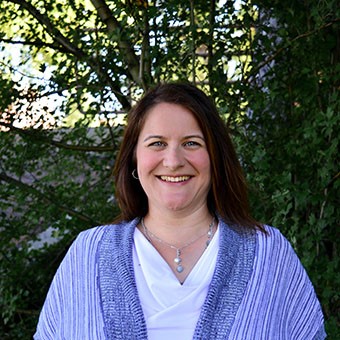
Paula Adams, MA
Director of Health Promotion for Cougar Health Services
Co-PI State of Washington Collegiate Recovery Initiative
Immediate Past Chair, Health Promotion Section, American College Health Association
Currently in the position of director of health promotion at Washington State University, Paula Adams has 19 years of experience in prevention, health education, and health promotion in higher education. She has a master’s degree in strategic communication and is near completing a doctoral degree in prevention science. Paula led writing and implementation of $1 million in federal grants to bring collaborative, systemic change to WSU Pullman around sexual violence prevention and suicide prevention.
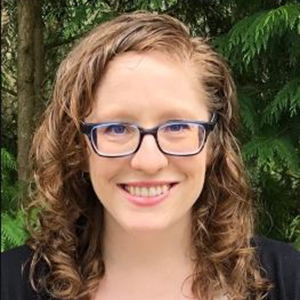
Kelsey Barrans, MSW
(She/Her)
Violence Prevention Center Program Manager
Green River College
Kelsey Barrans has a master's in social work with a concentration in community centered integrative practice. She has been the program manager for the Green River College (GRC) Violence Prevention Center for the last two years and is currently overseeing the development of the Collegiate Recovery Program for the college. Prior to GRC, Kelsey worked at a local domestic violence service organization for 10 years providing advocacy to survivors of abuse and supervising a housing program dedicated to unhoused survivors who were in recovery and parenting.
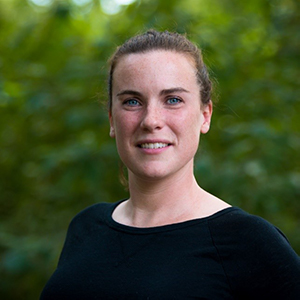
Jennifer Battis, MRes
Research and Evaluation
C4 Innovations
Jennifer Battis, MRes, is an evaluator, training, and technical assistance coordinator at C4 Innovations with over 10 years of experience leading evaluations and providing technical assistance to local and cross-site projects across the United States. Jennifer received her master's in social research (MRes) from the University of Aberdeen, Scotland, and has since worked on evaluations focusing on substance use treatment, criminal justice and specialty courts, juvenile justice and juvenile diversion programs, victim assistance programs, and human trafficking. Currently, Jennifer is part of the evaluation team partnering with Washington State University to conduct an environmental scan looking at the availability of collegiate recovery supports across the state of Washington. She recently finished a similar project looking at the availability of recovery housing across the state of Ohio. Jennifer is also working on a SAMHSA (Substances Abuse and Mental Health Services Administration)-funded evaluation in Connecticut to reduce hospital utilization among women experiencing homelessness, an evaluation examining processes and outcomes of the SPARC: Supporting Partnerships for Anti-Racist Communities initiative, funded by the Oak Foundation.
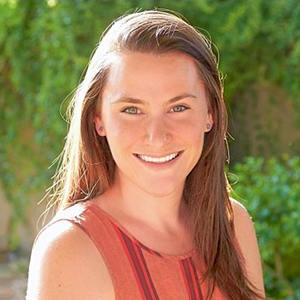
Sydney Cheifetz, MPH
Health Educator
Office of Health Promotion
Gonzaga University
Sydney Cheifetz is the alcohol and other drugs health educator in the Office of Health Promotion at Gonzaga University. She received her master's in public health with a concentration in global health and epidemiology from Oregon State University where she served as the collegiate recovery community graduate assistant. Her primary area of focus has been infectious disease prevention, global vaccination initiatives and collegiate health promotion with an emphasis on collegiate recovery. In her current role, she coordinates Gonzaga’s BASICS program, the OUR House recovery program, and uses a harm reduction approach to educate and empower students on the topic of substance use and holistic well-being.
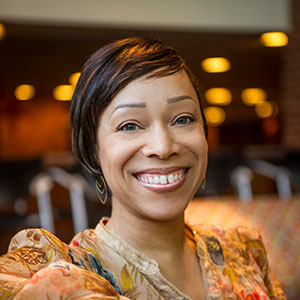
Rae Chresfield, PhD, NCC
Associate Dean of Health and Wellness
Director of the Counseling Center
Whitman College
Rae Chresfield, PhD, NCC received a BS in behavioral science from the University of Maryland, a master's in mental health & wellness from New York University, and a doctorate in counselor education from the State University of New York, Buffalo. In addition, Rae was trained as a nurse, educator and researcher and brings those experiences together into the role of associate dean of health and wellness. As a clinician, Rae explores the whole client, including their experiences, culture, context, and beliefs to create and facilitate client growth and mental health.

Michael Cleveland, PhD
Associate Professor
Human Development
Washington State University
Michael Cleveland’s research focuses on the entire spectrum of substance use and addiction. His primary prevention work centers on youth during the transition from high school into emerging adulthood. For many youth, this transition is associated with increased risk of alcohol and other substance use. Michael’s research highlights how parents can remain an active influence in their children’s lives during this time by offering strategies to help parents communicate and stay involved. This approach has wide-ranging implications for families as they learn how to navigate this transition in a way that empowers both the parent and the teen.
A second area of Michael’s research focuses on the daily experiences of people who are in recovery—that is, people who suffer from a substance use disorder. Many people’s lives are touched by addiction and the odds are high that most people know someone who has become addicted to alcohol, opioids, and other drugs.
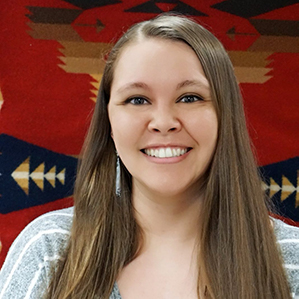
Kateri Coyhis, (Mohican)
Executive Director of White Bison
Wellbriety Training Institute, Colorado Springs, CO
Kateri Coyhis, Mohican Nation, is the director of White Bison’s Wellbriety Training Institute in Colorado Springs, CO. White Bison, Inc., is an American Indian non-profit 501(c)(3) corporation dedicated to creating and sustaining a grassroots Wellbriety Movement that provides culturally based healing to the next seven generations of Indigenous People. Kateri joined the White Bison staff in 2001, after beginning her own journey into recovery. In her role as director, she coordinates national training events and conferences, collects data for evaluations of federal grants, assists in the development of culturally-based curriculum for youth and adults, assists the executive director and chairman of the board, and trains community leaders across the country to implement a youth prevention program entitled Daughters of Tradition. Kateri continues to serve the Wellbriety Movement by providing community presentations to bring awareness to the programs White Bison offers for individual and family healing.
Kateri has been called to serve on a committees sponsored by the Substance Abuse and Mental Health Services Administration’s (SAMHSA’s) efforts to promote healing for individuals and families in recovery including National Recovery Month Planning Partners Committee, where she has also assisted in coordinating Recovery Month efforts around the country; and, Bringing Recovery Support Services to Scale Technical Assistance Center Strategy (BRSS-TACS), where she currently serves on the steering committee, has conducted webinar presentations, participated on an expert panel to discuss gaps in services for adults in recovery and their families, and assisted in the development of a toolkit kit for Youth Recovery: Youth and Young Adult Leadership Development.
Kateri also is a co-author for a chapter in the book, "Radical Psychology: Multicultural and Social Justice Decolonization Initiatives" (2018). Kateri received a bachelor’s degree in history from the University of Colorado at Colorado Springs.

Rep. Lauren Davis, District 32
Washington State Representative
32nd Legislative District
Lauren Davis grew up in King County and is a proud product of the public school system. Lauren’s first job was teaching at a Head Start program, and this fueled her passion for early childhood education. After college, she spent several years working in global development, as a Fulbright Fellow in Ghana, West Africa, and a consultant at the Bill & Melinda Gates Foundation.
While at the Gates Foundation, Lauren served as the primary caregiver to her best friend Ricky Garcia, who was gravely ill with untreated alcohol and opiate addiction. This August, Ricky will celebrate seven years in long-term recovery. When Ricky got better, Lauren got busy—busy working to fix the system gap that nearly cost his life. Although she was working full-time and attending graduate school, this became her crusade. She championed HB 1713, named “Ricky’s Law,” which was signed by Governor Inslee in 2016. The legislation created an involuntary crisis commitment system for youth and adults with life-threatening addiction. Ricky’s Law represents one of the largest single investments in addiction treatment in Washington state history. It was during those long days at the capitol advocating for Ricky’s Law that women lawmakers began asking Lauren to run for office. For her efforts, Lauren was given the 2016 Hero Award from the Washington Council for Behavioral Health.
The heartache of Ricky’s suffering propelled Lauren to leave her international development career and help launch a start-up suicide prevention nonprofit called Forefront. At Forefront, Lauren directed school and campus-based mental health and suicide prevention programs, working directly with high schools across King County and colleges across the state. She provided suicide prevention training to groups ranging from veterans to pharmacists to Grandmothers Against Gun Violence.
Lauren helped to found the Washington Recovery Alliance, where she now serves as the organization’s first executive director. She also serves on the Public Policy Committee for the National Alliance on Mental Illness (NAMI) of Washington State and served for many years on King County’s Behavioral Health Advisory Board. Lauren recently taught a mental health policy course in the master's level social work program at the University of Washington. She is a strong champion for mental health and addiction recovery, strengthening our schools, reforming the criminal justice system, and affordable housing.
Lauren resides in Shoreline, is a member of Grace United Methodist Church, and plays goalkeeper in a recreational soccer league.
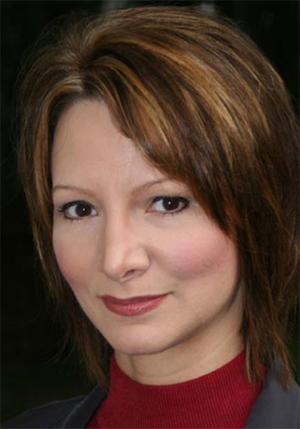
Kathleen Ferreira, PhD
Director of Research and Evaluation
C4 Innovations
Kathleen Ferreira, PhD, is the current C4 Innovations director of research and evaluation and a former direct care provider with over 20 years of experience in development and implementation of services and supports for vulnerable individuals. Over the last 15 years, Kathleen has conducted mixed methods research, evaluation, training, and technical assistance with service systems, organizations, providers, recipients, and families. Her research areas include mental health and recovery, substance use and prevention, homelessness, family- and consumer-driven services, organizational and system-level development, and interagency collaboration for youth with special needs.
Kathleen has worked on small- and large-scale evaluation projects, including Substance Abuse and Mental Health Services Administration's Children’s Mental Health Initiative, National Child Traumatic Stress Network, and Healthy Transitions Initiative. She has also served as principal investigator, senior research methodologist, or co-investigator on several federally funded grants through National Institute of Health, National Institute on Disability and Rehabilitation Research, Institute of Education Sciences, and Conrad N. Hilton Foundation.
Kathleen has extensive experience as an instructional designer, developing online curricula, training modules, toolkits, and other online products for the U.S. Departments of Health and Human Services, Housing and Urban Development, and Labor.
Kathleen received a Ph.D. in Interdisciplinary Education from the University of South Florida.
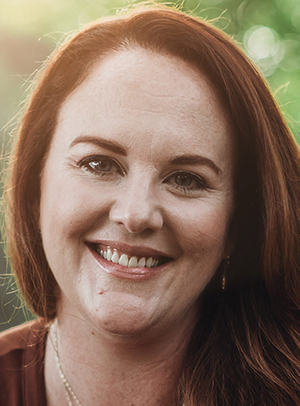
Kristen Harper, MEd
Recovery Specialist
Project Amp Implementation Coordinator
C4 Innovations
Kristen Harper, MEd, Recovery Specialist, Project Amp Implementation Coordinator, has over 15 years of experience in nonprofit management, policy reform, and recovery services.
She began her career in collegiate recovery in 2008 as the founding director of the Center for Addiction Recovery at Georgia Southern University. In 2011, Kristen joined the Texas Tech University Collegiate Recovery Community team as a research associate where she focused most of her work on supporting the SAMHSA and DOE funded Collegiate Recovery Community Replication project. Kristen joined the Association of Recovery Schools as the first full-time executive director in 2013 to help amplify the mission devoted to creating and sustaining recovery high schools. Prior to joining C4, she was the executive director for the Recovery Communities of North Carolina, a statewide recovery community organization. There, she managed the Access to Recovery grant in collaboration with the State of North Carolina’s Division of Mental Health, Developmental Disabilities and Substance Abuse Services.
Kristen currently sits on the National Advisory Council for SAMHSA’s Center for Substance Abuse Treatment. She has a BA in interpersonal communications and a master’s degree in education from Mercer University.
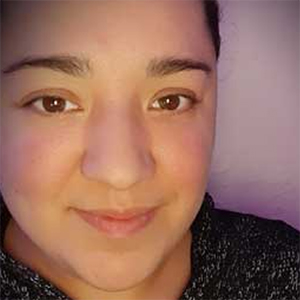
Ely Hernandez
Executive Director
Washington Recovery Alliance
Originally from Mexico City, Ely came to the U.S. when she was 13 years old and grew up in Texas. She then moved to Seattle where she attended the University of Washington for her bachelor’s degree and then attended the University of Michigan for her master’s degree in social work.
As a queer, immigrant, woman of color who grew up in a working class family, Ely personally understood the challenges of her communities but was also able to experience the strengths, hope, resilience and successes. As part of her professional life, she spent almost a decade in clinical direct services where she continued to see the barriers to wellness in her communities. Ely's belief that community should drive the work is a perfect fit for WRA values—bringing lived experiences to decision-making tables everywhere. Ely is extremely grateful to work alongside the recovery community to further pro-recovery policy and community education in order to fulfill the mission of the WRA: To make recovery a reality for all.

Katherine Hirchak, (Eastern Shoshone)
Assistant Research Professor
Behavioral Health Innovations
Washington State University, Spokane
Dr. Katherine (Kait) Hirchak is an assistant research professor in the Elson S. Floyd College of Medicine at Washington State University and is a federally recognized descendant of the Eastern Shoshone. She completed her postdoctoral training at the University of New Mexico's Center on Alcohol, Substance use, And Addictions (CASAA) as a NIAAA T32 Fellow. For more than 10 years, she has partnered with tribal communities to address health inequities and enhance well-being. Broadly, Dr. Hirchak's research interests, activities, and training include health policy, assessing alcohol and substance use disorder interventions among American Indian and Alaska Native communities, conducting clinical trials and mixed-methods research in diverse settings, and culturally adapting evidence-based interventions.
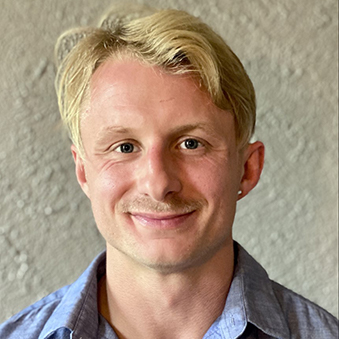
Chase Holleman, LCSW, LCAS
(He/Him)
Harm Reductionist
University of North Carolina, Greensboro
Collegiate Recovery Alumni
Chase Holleman, LCSW, LCAS, is the program director of Guilford County Solution to the Opioid Problem (GCSTOP). In his role at GCSTOP, Chase works with a field unit of social work students to provide overdose prevention services to people in Guilford County, North Carolina. Chase primarily teaches and practices from a humanistic perspective centered in harm reduction principles and social work values. When not at work, Chase enjoys spending a lot of time training for triathlons and with his dog, Rio.

Adrienne Kasmally
Research Coordinator
C4 Innovations
Adrienne Kasmally is an evaluator and research coordinator at C4 Innovations. She has led evaluations on sexual and domestic violence prevention programs and policies that emphasize the importance of person-centered, trauma-informed care. She has also conducted evaluations on Title IX policies, childhood behavioral and mental health programs, and programming for survivors of domestic violence.
Adrienne has assisted in evaluations on nationwide legislation for sexual misconduct crimes and worked with policymakers in Massachusetts to promote evidence-based legislation to support survivors of interpersonal violence. She has a background in advocacy work and is passionate about supporting and empowering marginalized communities. Adrienne is currently working among a team of evaluators to examine the presence and quality of collegiate recovery supports across the state of Washington.
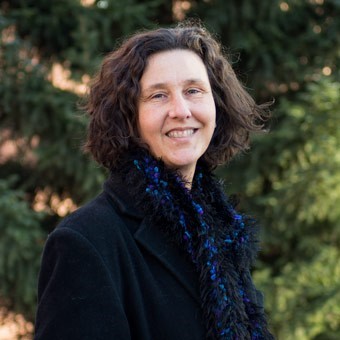
Patricia Maarhuis, PhD
Research and Program Development
Cougar Health Services, Health Promotion
Washington State University
Patricia has worked in collegiate substance use prevention and recovery support for over 20 years. Currently, she oversees research and substance use program development as a health promotion specialist at Washington State University in Pullman. As well, she has authored or edited publications and reports on education, culture, and high-risk health experiences.
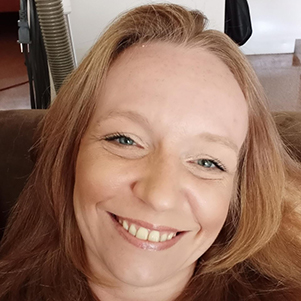
Jennifer Madison
President, Cougs for Recovery
Washington State University
Jennifer is a returning WSU student. She has a BA in communication from WSU and is studying creative writing with an emphasis on publishing. She went back to school to obtain sobriety after deciding to enter recovery for substance use disorder. She has been in recovery for over nine months and enjoys the idea of helping others who are battling their own addictions. Her journey has taken her from homelessness and poverty to recovery and education. Balancing recovery and education is a unique situation that presents its own challenges, she says. She has successfully maintained straight A's, and owes it to WSU and Cougs For Recovery for offering the supportive environment she needed to build her life again. She is honored to be part of the collegiate recovery movement.

Stasie Maxwell, (Iñupiaq)
Psychology Major + Native Studies Certificate
McNair Scholar
Co-Chair of the SOU Native American Student Union
Member of CORE, the Community of Recovery in Education
Stasie Maxwell is an undergraduate at Southern Oregon University, located on Cow Creek Umpqua, Takelma, and Grand Ronde Territory (also known as Ashland, Oregon). She is pursuing her major in psychology with a native studies certificate. Her interests are centered around mind/body/spirit wellness, social and environmental justice, community building, and the ways in which Western Psychology and Indigenous Science can inform and complement each other. She has begun to activate her education and facilitate community action through her co-leader position within the PGMOne Leadership Council, a BIPOC-centered social justice organization with a mission dedicated to anti-oppression and collective liberation work.
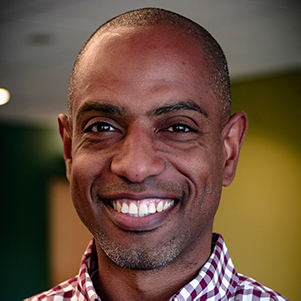
Keith Murphy, LPC, LCADC
Senior Substance Abuse Counselor
Rutgers University
Keith Murphy is a licensed professional counselor and licensed clinical alcohol and drug counselor in New Jersey. He has over 14 years of experience in helping those who struggle with addiction and other major life issues rebuild their lives. In his present role as a recovery counselor, Keith has been tasked to help the students in the college recovery program develop skills for recovery and life in college and beyond. As a member of the Rutgers counseling staff, Keith has the privilege of seeing students flourish and become world-changers.

Alison Newman, MPH
(She/Her)
Continuing Education Specialist, COSE
University of Washington
Since joining Addictions, Drug & Alcohol Institute in 2017, Ms. Newman has provided training and education on overdose, opioids, and worked on the website, stopoverdose.org. She specializes in health education and healthcare access around drug use.
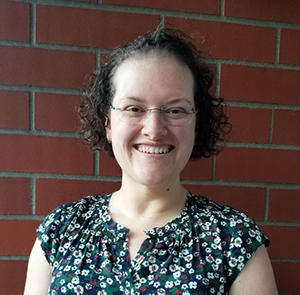
Sarah Postel, MEd
(She/Her)
Director of Violence Prevention
Student Testing & Communications
Green River College
Sarah has worked in higher education for over 15 years. She has experience serving students from outreach through first quarter advising. She has been the director of the Assessment and Testing Center at Green River College for the last 9 years. Sarah has her MEd in student development administration and serves on the student affairs leadership team. Sarah is passionate about equitable access to education for all students. She has been involved in the creation of interpersonal violence prevention services at Green River and is excited to be adding collegiate recovery and formerly incarcerated supports for students.
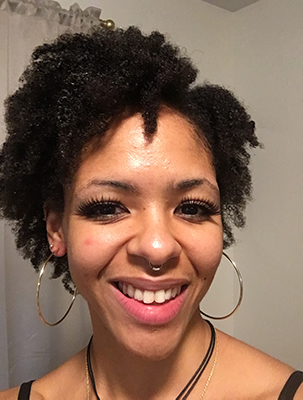
Amber Stephens
(She/Her/Hers)
Harm Reductionist and Peer Advocate
University of Albany student
Amber is a person in long term abstinence-based recovery. She is currently working as a recovery peer advocate and a harm reductionist at her community outpatient while pursuing a bachelor's degree in social work at the local university. Amber is a member of multiple honor societies and maintains a 3.8 GPA. Amber subscribes to the 12-step recovery model, but also practices holistic methods of wellness such as yoga, meditation, and spirituality. Amber is a yoga instructor and facilitates yoga and breathwork classes for the clients at her agency. Amber's goals are to gain her master's in social work and establish a private practice that specializes in communication and somatic healing. She also aims to become a yoga therapist to reach clients that are not benefiting from conventional methods of therapy.
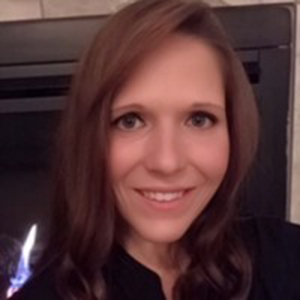
Liz Venuto
Transition Age Youth Integrated Services
Children, Youth, and Family Behavioral Health
Division of Behavioral Health and Recovery
Washington State Healthcare Authority
Elizabeth Venuto has a master's degree in social work along with a BA with honors in philosophy, human development and family science. Liz has over 10 years of experience in the behavioral health field in both direct service and organizational roles in mental and behavioral health systems across the country. Additionally, she has worked with vulnerable and specific populations such as those served by treatment level foster care, Children’s Long-term Inpatient Program, and military and veteran family services aimed at reducing and preventing child abuse.
She has a passion for implementing change in the system and is committed to growing a continuum of services to meet the needs and improve the wellness of children, transition age youth, and young adults with behavioral health experience. Her aim is to include the voice of lived experience of both youth and families at all levels of the system. Liz is passionate about the work happening within our state, she strives to better the system and to bring individuals alongside her who are just as passionate.
Jon Wallis
Project Coordinator
Cougar Health Services, Health Promotion
Washington State University
Jon helped launch Cougs for Recovery (C4R), a student-led collegiate recovery community at Washington State University, while finishing his undergraduate studies in psychology. He's now in the second year of graduate school at Seattle University to become a therapist.